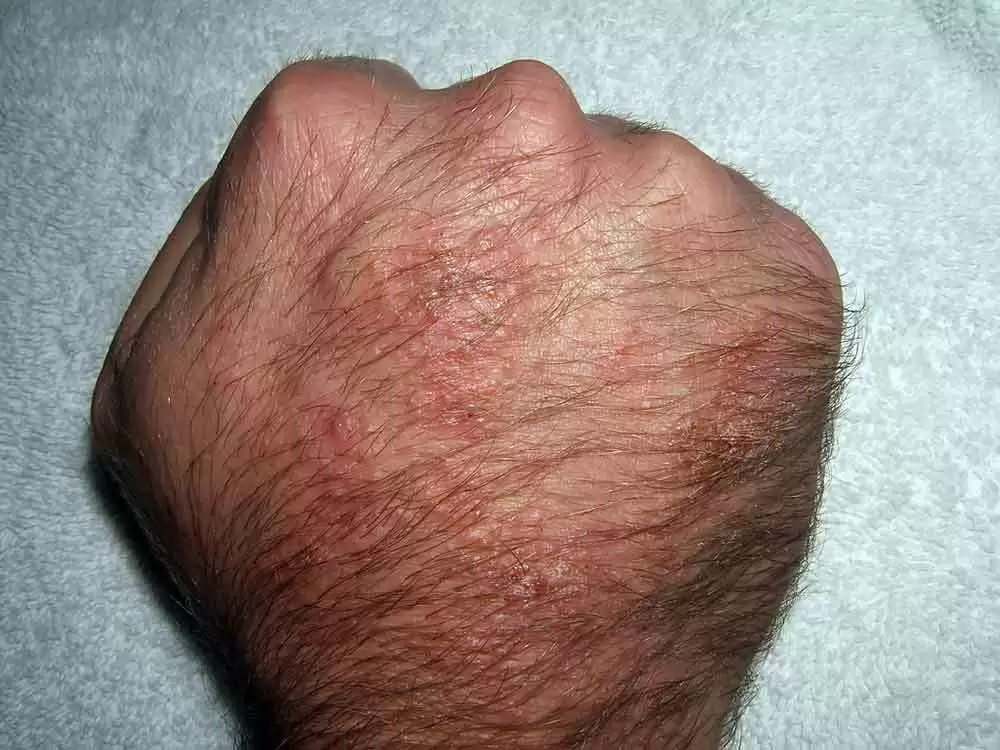
Celiac.com 12/12/2022 - Atopic dermatitis is associated with immune dysregulation, but epidemiological data on the pattern of autoimmune comorbidity in people with atopic dermatitis are limited.
A team of researchers recently set out to determine the risk of autoimmune conditions in people newly diagnosed with atopic dermatitis.
Celiac.com Sponsor (A12):
The research team included Simon de Lusignan, MD; Helen Alexander, BSc, MBBS; Conor Broderick, MB, BCh, BAO, MSc; Andrew McGovern, MD; Claire Feeney, PhD; Carsten Flohr, PhD. They are variously affiliated with theNuffield Department of Primary Care Health Sciences, University of Oxford, Oxford, United Kingdom; the Royal College of General Practitioners Research and Surveillance Centre, London, United Kingdom; the Unit for Population-Based Dermatology Research, St John’s Institute of Dermatology, Guy’s & St Thomas’ NHS Foundation Trust and King’s College London, London, United Kingdom; the Momentum Data, Pendragon House, St Albans, United Kingdom; and with Pfizer Ltd, Tadworth, United Kingdom.
A Retrospective Cohort Analysis
The team used the the UK-based Oxford–Royal College of General Practitioners Research and Surveillance Centre primary care database to conduct a retrospective cohort analysis that covered the period from January 2009 to December 2018.
They compared baseline rates and incidents after diagnosis of autoimmune conditions in nearly 175,000 children and adults with new-onset atopic dermatitis, and nearly 700,000 control subjects, matched for age, sex, and general practitioner practice.
Outcomes were a composite of any autoimmune condition, including Crohn disease, ulcerative colitis, celiac disease, pernicious anemia, type 1 diabetes, autoimmune hypothyroidism, Graves disease, psoriatic arthritis, rheumatoid arthritis, ankylosing spondylitis, systemic lupus erythematosus, Sjögren syndrome, vitiligo, alopecia areata, and multiple sclerosis, and each individual autoimmune condition.
Their Findings
The team found that people diagnosed with atopic dermatitis were more likely to have an existing autoimmune condition, compared to control subjects.
Once the team eliminated patients with preexisting autoimmune disease, they found a connection between atopic dermatitis and cases of new-onset autoimmune disease. Patients with more severe atopic dermatitis faced a greater risk than those with moderate or mild atopic dermatitis.
People with atopic dermatitis also faced a significantly higher risk for psoriatic arthritis, Sjögren syndrome, Crohn disease, vitiligo, alopecia areata, pernicious anemia, ulcerative colitis, rheumatoid arthritis, and hypothyroidism, but not for other autoimmune conditions.
Conclusions
From their results, the team concludes that people with atopic dermatitis, especially those with severe atopic dermatitis, face significantly higher risk for developing numerous other autoimmune conditions.
Stay tuned for more on this and related stories.
Read more in: Allergy and Clinical Immunology








Recommended Comments
Create an account or sign in to comment
You need to be a member in order to leave a comment
Create an account
Sign up for a new account in our community. It's easy!
Register a new accountSign in
Already have an account? Sign in here.
Sign In Now